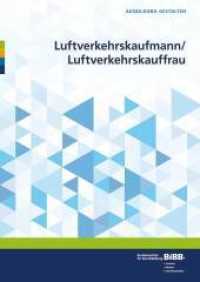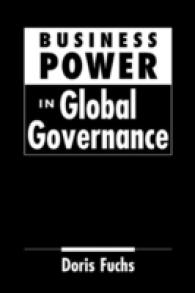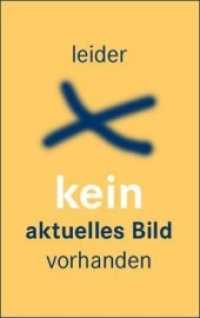- ホーム
- > 洋書
- > ドイツ書
- > Mathematics, Sciences & Technology
- > Physics and Astronomy
- > mechanics & acoustics
基本説明
The articles provide a broad and accurate picture of the fortune of Galileo's theory of motion in Europe and of the various physical, mathematical, and ontological arguments that were used in favour and against it.
Full Description
This book has evolved out of a colloquium entitled "The Reception of the Galilean Science of Motion;' held at Amsterdam on 5-7 July 2000. It was our intention as the organizers to bring together historians of science interested in Galileo's science of motion, its ramifications in seventeenth-century Europe, and its impact on what Anneliese Maier and E. J. Dijksterhuis have labeled the "mechanization of the world picture. " Funding for the conference was provided by the Royal Netherlands Academy of Arts and Sciences, which honored our proposal for an Academy Colloquium. We should also like to thank Ap de Wit, Martine Wagenaar, and Ine van den Heuvel from the Royal Academy for the careful and reliable administrative organization of the colloquium. Through a generous grant (no. 200-22-295), the Netherlands Organization for Scientific Research ( NWO) allowed the Center for Medieval and Renaissance Natural Philosophy at Nijmegen University to act as the colloquium's second sponsor. All papers that were read at the colloquium have been strongly modified for publication.
It is hoped that the resulting articles display even more coherence and unity than the colloquium did, while at the same time retaining something of its spirit and diversity. In addition to the authors whose articles are published here, the following scholars also participated in the discussions: Constance Blackwell, Hans Bots, Henk Braakhuis, Wiep van Bunge, Dirk-Jan Dekker, Fokko-Jan Dijksterhuis, Juliette van den Elsen, Fran'Tois de Gandt, Christoph Luthy, Olaf Pluta, Thomas Settle, Theo Verbeek, and Liesbeth de Wreede.








